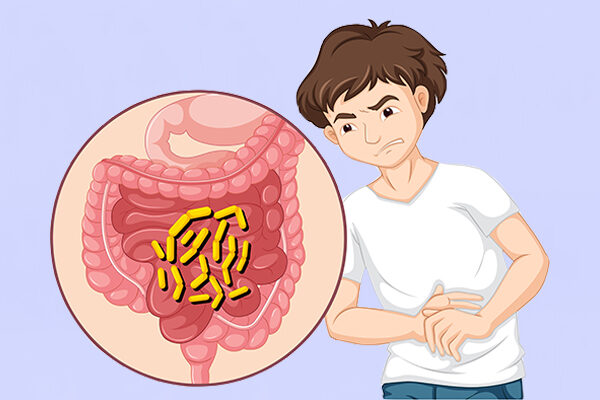Last Updated on May 28, 2025
Women’s Health Deserves the Spotlight
National Women’s Health Month isn’t just a calendar event. It’s a reminder that women face unique health challenges that require real conversations, regular checkups, and proactive care. Each year in May, this initiative aims to raise awareness, promote preventive health care, and inspire women to make their health a top priority.
This year, the theme for National Women’s Health Month 2025 is “Know Your Pelvic Floor”. It focuses on understanding pelvic floor health an essential part of a woman’s well-being that impacts bladder, bowel, and sexual function.
From heart health and hormones to sleep issues and pelvic health, there’s a lot going on beneath the surface and all of it matters.
Why Is National Women’s Health Month So Important?
This month isn’t about one single condition. It’s about the bigger picture.
- Many women delay doctor visits due to work, family, or lack of symptoms.
- Hormonal changes throughout life can trigger various conditions.
- Several health issues, like heart disease, can look different in women than in men.
- Pelvic floor disorders often go undiagnosed and untreated, despite affecting millions of women.
So, during National Women’s Health Month, we take time to raise awareness around prevention, early diagnosis, and access to better health care.
National Women’s Health Month 2025 is about understanding your health and encouraging action before problems become serious.
What Is the Pelvic Floor and Why Should You Care?
The pelvic floor is a group of muscles and tissues that support the bladder, uterus, and bowels. These muscles help control urination, bowel movements, and even sexual function.
A weakened or strained pelvic floor can cause:
- Urinary incontinence
- Pelvic organ prolapse
- Chronic pelvic pain
- Discomfort during intercourse
Despite how common these issues are, many women feel embarrassed to talk about them or don’t know help is available. National Women’s Health Month is the perfect time to break the silence and take control of your pelvic health.
Are You Listening to What Your Body’s Saying?
Let’s be honest, it’s easy to brush off discomfort or weird symptoms.
However, ignoring these signs can delay important diagnoses. This month is a good time to check in:
- Are you feeling more tired than usual?
- Having trouble sleeping or feeling anxious?
- Experiencing irregular periods or bladder discomfort?
These signs may seem small, but they deserve your attention. National Women’s Health Month reminds us not to ignore these whispers from our body.
Clinical Trials Can Offer Hope (and Answers)
At Revive Research Institute, we’re running several clinical trials focused on women’s health conditions that often go untreated or underdiagnosed:
- Trouble sleeping due to menopause
- Endometrial hyperplasia
- Bladder pain syndrome (also known as interstitial cystitis)
- Oral contraception studies
- Nocturnal enuresis (involuntary urination at night)
These trials may offer access to new treatments and expert care. Participating can also help researchers better understand these conditions and develop future treatments.
Sleep Troubles During Menopause: Is It Affecting You?
Sleep can become a serious struggle during and after menopause. Night sweats, anxiety, and hormonal changes often steal the rest women need.
- You might fall asleep fine but wake up at 3 a.m. unable to doze off again.
- Or maybe you toss and turn all night and feel drained during the day.
Sleep is not a luxury. It’s vital to your mental, physical, and emotional health. National Women’s Health Month is the perfect time to ask: how well are you really sleeping?
If sleep issues have become part of your nightly routine, you may qualify for a clinical trial focused on improving sleep during menopause.
What Is Endometrial Hyperplasia and Why Should You Care?
Endometrial hyperplasia occurs when the lining of the uterus grows too thick. It can cause heavy periods, spotting, or pain and sometimes, it’s a warning sign of something more serious.
During National Women’s Health Month 2025, one of our goals is to raise awareness about reproductive health conditions that often get overlooked. If you’re experiencing symptoms, don’t wait it out.
Revive Research Institute is conducting trials for this condition. Getting involved might give you new options while helping others who face the same diagnosis in the future.
Bladder Pain Isn’t Normal, Let’s Talk About It
Many women deal with bladder pain or frequent urges to go to the bathroom. It can affect sleep, confidence, and daily life yet it’s rarely discussed.
This National Women’s Health Month, it’s time to bring it into the spotlight.
You might be living with bladder pain syndrome, also called interstitial cystitis. It’s a chronic condition that causes pain, pressure, or discomfort in the bladder area.
Through our clinical trials, we’re exploring potential new treatment options for this condition. If this sounds familiar, you don’t have to just live with it.
Oral Contraceptives: Are You Exploring All Options?
Many women rely on birth control for different reasons, not just preventing pregnancy. It can help regulate periods, manage acne, and reduce hormonal symptoms.
During National Women’s Health Month 2025, we’re highlighting the importance of informed decisions about contraception.
Our current studies on oral contraceptives aim to provide safer, more effective options. If you’re interested in participating, it could help shape the future of women’s reproductive care.
What About Nocturnal Enuresis in Women?
Nocturnal enuresis, or involuntary urination during sleep, is usually associated with children. But adult women experience it, too. And often, it goes unspoken.
This condition can affect your confidence, intimacy, and sleep. National Women’s Health Month is about shedding light on all aspects of health, even those that are harder to talk about.
Our ongoing trials are designed to explore potential new treatment options for this sensitive but very real issue.
Small Steps Lead to Big Changes
You don’t have to make massive changes overnight. Start small:
- Schedule your annual check-up.
- Track changes in your cycle.
- Ask questions when something feels off.
- Look into clinical trials near you.
National Women’s Health Month is a great time to take action, even if it’s just one step forward.
Final Thoughts: Take Charge of Your Health Today
Your health is personal. And it matters every single day. National Women’s Health Month 2025 reminds us that our well-being deserves attention, answers, and action.
If you’ve been putting off care or living with symptoms that disrupt your daily life, you don’t have to go through it alone. At Revive Research Institute, we’re committed to providing more than just studies, we offer hope, options, and support.




